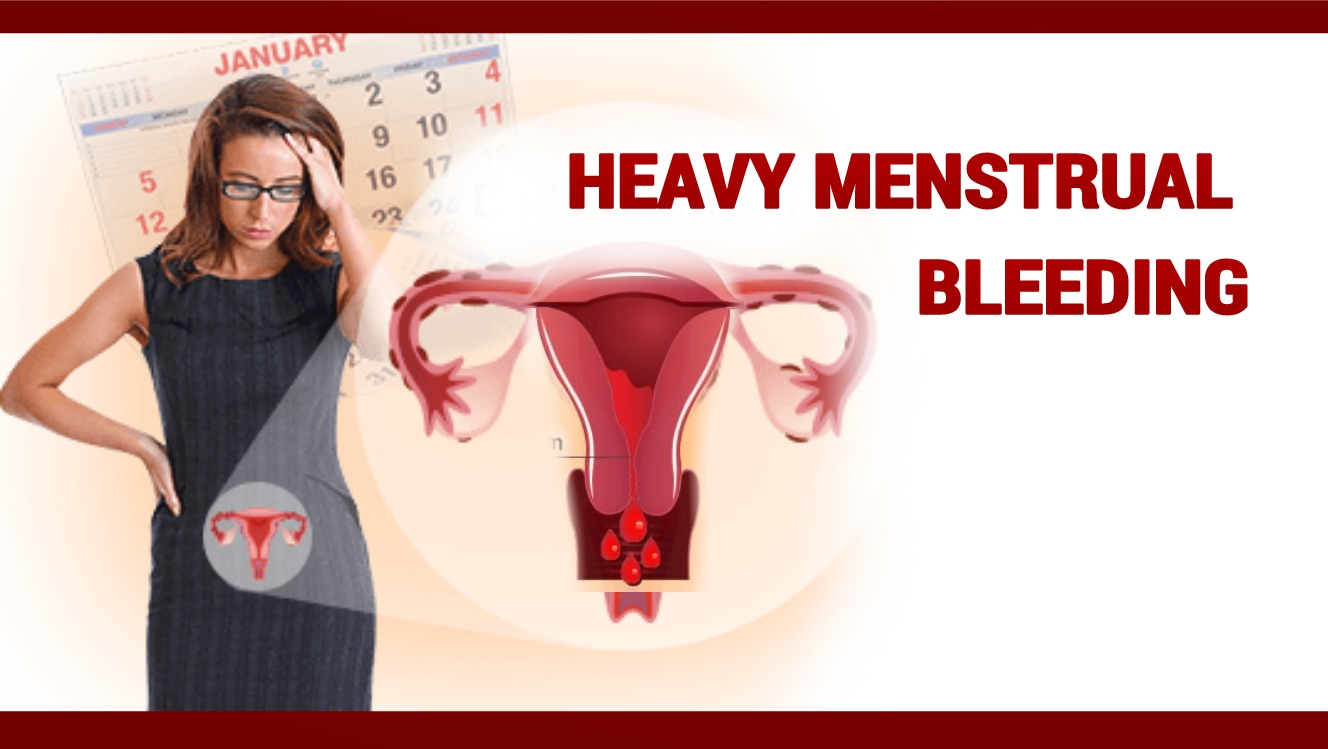
Heavy menstrual bleeding, medically known as menorrhagia, is a condition characterized by abnormally heavy or prolonged menstrual bleeding. It can significantly impact a woman’s physical, emotional, and social life, leading to symptoms like anemia from the excessive blood loss, fatigue, and limitations on daily activities.
Causes of Heavy Bleeding
Several factors and conditions can contribute to heavy menstrual bleeding, including:
- Uterine fibroids: Noncancerous growths in the uterus can lead to heavier or longer-than-normal periods.
- Polyps: Small benign growths on the lining of the uterus or cervical canal can cause heavy or irregular menstrual bleeding.
- Adenomyosis: A condition where endometrial tissue grows into the muscular wall of the uterus, causing painful, heavy periods.
- Endometrial hyperplasia: A thickened uterine lining can result in heavy menstrual bleeding.
- Hormonal imbalances: Imbalances in estrogen and progesterone levels can cause the endometrial lining to build up excessively, then shed in a heavy menstrual flow.
- Bleeding disorders: Conditions such as von Willebrand disease can affect the blood’s ability to clot, leading to heavy menstrual bleeding.
- Medications: Certain medications, including anticoagulants and some anti-inflammatory drugs, can increase menstrual bleeding.
- Pelvic inflammatory disease (PID): An infection of the reproductive organs can cause heavy bleeding.
- IUDs: Non-hormonal intrauterine devices (IUDs) for contraception might increase menstrual flow for some women.
- Pregnancy complications: Heavy bleeding can be an early sign of miscarriage or ectopic pregnancy.
Diagnosis
To diagnose the cause of heavy menstrual bleeding, healthcare providers may employ several approaches, including:
- Medical history and physical examination: To rule out signs of disease and other contributing factors.
- Blood tests: To check for anemia, thyroid problems, clotting disorders, and hormonal imbalances.
- Pap test: To detect changes in cervical cells.
- Ultrasound: To visualize the uterus, ovaries, and pelvis, identifying fibroids, polyps, or other abnormalities.
- Endometrial biopsy: To take a small sample of the uterine lining for laboratory analysis.
- Hysteroscopy: A procedure to inspect the inside of the uterus with a small camera.
Treatment Options
Treatment for heavy menstrual bleeding varies depending on the underlying cause and may include:
- Medications: Nonsteroidal anti-inflammatory drugs (NSAIDs), tranexamic acid, oral contraceptives, hormonal IUDs, and progestin therapies can reduce blood loss.
- Surgical procedures: Options like dilation and curettage (D&C), focused ultrasound surgery, myomectomy (for fibroids), endometrial ablation, or in severe cases, hysterectomy, might be considered.
- Iron supplements: For those who have developed anemia due to heavy bleeding.
Managing Heavy Menstrual Bleeding
If you are experiencing irregular bleeding and periods, an ultrasound scan can help identify potential causes. Conditions such as uterine fibroids, polyps, ovarian cysts, endometrial hyperplasia, polycystic ovary syndrome (PCOS), and adenomyosis can be detected through ultrasound. Using trans-abdominal and trans-vaginal ultrasound, a professional gynaecology specialist sonographer can obtain images of the reproductive organs to pinpoint abnormalities.
Book an appointment at our ultrasound clinic to evaluate your situation and receive a same day result.
Note: Blood tests are also significant in evaluating irregular bleeding as they can provide insights into hormonal imbalances and other underlying conditions. Hormonal disorders, such as thyroid dysfunction or polycystic ovary syndrome (PCOS), can contribute to irregular bleeding. Blood tests can measure hormone levels, such as estrogen, progesterone, thyroid hormones, and certain reproductive hormones (LH, FSH), helping to identify any abnormalities or imbalances.
Please let one of our clinicians know if you would also like to arrange a blood test on the same day.
Telephone: 020 7101 3377

